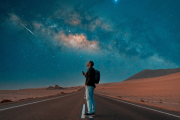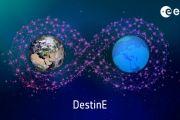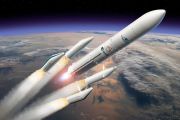
Copernical Team
SpaceX's Crew 5 mission blasts off to International Space Station
 NASA and SpaceX's Crew 5 mission lifted off from Cape Canaveral Space Force Station in Florida at noon EDT on Wednesday and is on its way to the International Space Station.
The crew, which includes NASA astronauts Nicole Mann and Josh Cassada, Japanese astronaut Koichi Wakata and Russian cosmonaut Anna Kikina, are scheduled to work aboard the space station for six months.
SpaceX
NASA and SpaceX's Crew 5 mission lifted off from Cape Canaveral Space Force Station in Florida at noon EDT on Wednesday and is on its way to the International Space Station.
The crew, which includes NASA astronauts Nicole Mann and Josh Cassada, Japanese astronaut Koichi Wakata and Russian cosmonaut Anna Kikina, are scheduled to work aboard the space station for six months.
SpaceX Atlas V rocket launches two communications satellites
 Two new communications satellites are deployed into space after launching aboard an Atlas V rocket from Cape Canaveral Space Force Station, Fla.
The United Launch Alliance launch went smoothly with liftoff at 5:36 p.m. Tuesday, followed by the jettisoning of the Atlas V's three solid rocket boosters two minutes later and the separation of its first stage about 4.5 minutes after liftoff.
Two new communications satellites are deployed into space after launching aboard an Atlas V rocket from Cape Canaveral Space Force Station, Fla.
The United Launch Alliance launch went smoothly with liftoff at 5:36 p.m. Tuesday, followed by the jettisoning of the Atlas V's three solid rocket boosters two minutes later and the separation of its first stage about 4.5 minutes after liftoff. Amid Ukraine war, US flies Russian cosmonaut to ISS
 A SpaceX rocket carrying a Russian crew member blasted off from Florida Wednesday on a voyage that carries significant symbolism as war rages in Ukraine.
Anna Kikina, the only female cosmonaut in service, is part of the Crew-5 mission, which also includes one Japanese and two American astronauts.
"Let's do this," said Nicole Mann, commander of the Crew Dragon capsule and the first Native
A SpaceX rocket carrying a Russian crew member blasted off from Florida Wednesday on a voyage that carries significant symbolism as war rages in Ukraine.
Anna Kikina, the only female cosmonaut in service, is part of the Crew-5 mission, which also includes one Japanese and two American astronauts.
"Let's do this," said Nicole Mann, commander of the Crew Dragon capsule and the first Native Russian launches to space from US, first time in 20 years
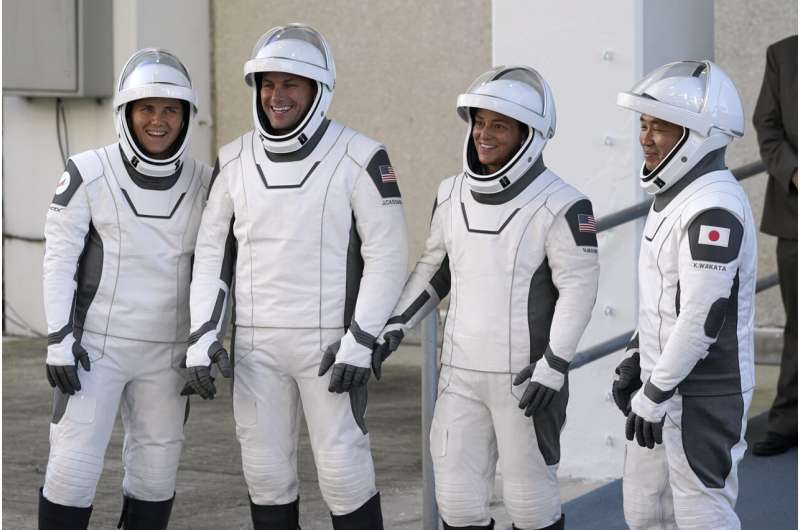
Lensed galaxies in VV 191 (Webb and Hubble composite image)
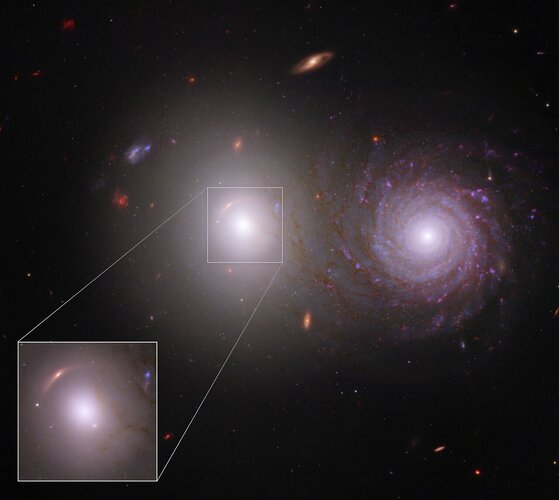 Image:
Lensed galaxies in VV 191 (Webb and Hubble composite image)
Image:
Lensed galaxies in VV 191 (Webb and Hubble composite image) Interacting galaxies VV 191 (Webb and Hubble composite image)
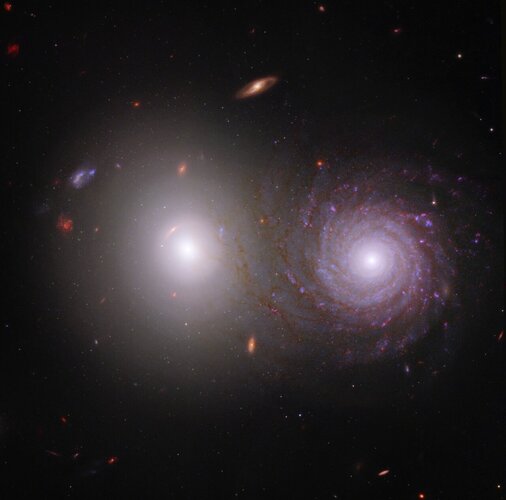 Image:
Interacting galaxies VV 191 (Webb and Hubble composite image)
Image:
Interacting galaxies VV 191 (Webb and Hubble composite image) Amid Ukraine war, US set to fly Russian cosmonaut to ISS
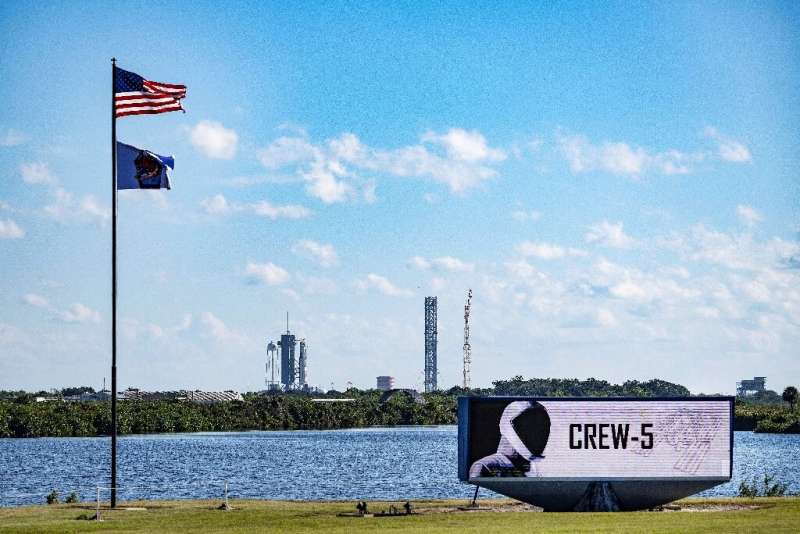
The United States will on Wednesday carry a Russian to the International Space Station aboard a SpaceX ship, in a voyage that carries symbolic significance amid the Ukraine war.
Anna Kikina, the only female cosmonaut in service, is part of the Crew-5 mission, which also includes one Japanese and two American astronauts.
Blast-off is set for noon from the Kennedy Space Center, with the weather forecast so far promising.
Two weeks ago, an American astronaut took off on a Russian Soyuz rocket for the orbital platform.
The long-planned astronaut exchange program has been maintained despite soaring tensions between the two countries since Moscow's invasion of Ukraine in February.
Space to boost secure sustainable energy supplies
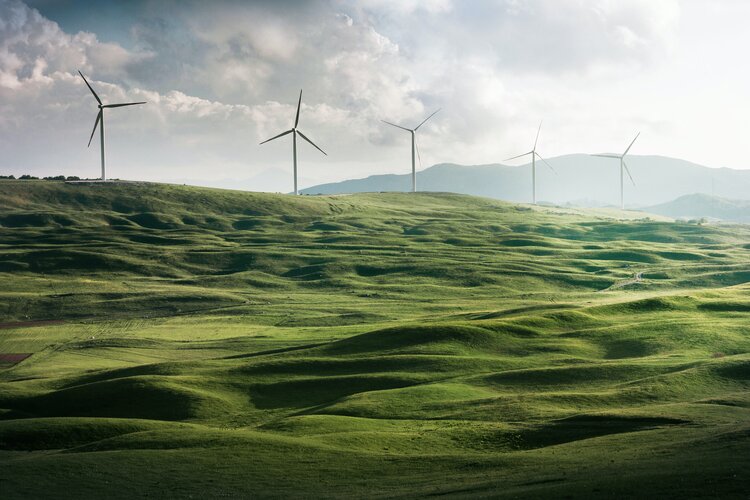
Space applications, technologies and data are ready to accelerate the green transformation of the energy industry.
China begins search for fourth astronaut generation
 China has recently started recruiting the country's fourth generation of astronauts, and the search has opened to people in Hong Kong and Macao for the first time, the China Manned Space Agency said.
The agency said in a news release on Sunday afternoon experts will pick 12 to 14 candidates for the new generation. Among them, seven to eight will be spacecraft pilots, three to four will be
China has recently started recruiting the country's fourth generation of astronauts, and the search has opened to people in Hong Kong and Macao for the first time, the China Manned Space Agency said.
The agency said in a news release on Sunday afternoon experts will pick 12 to 14 candidates for the new generation. Among them, seven to eight will be spacecraft pilots, three to four will be Concert Technologies to use C6 Launch to launch its satellites
 Concert Technologies and C6 Launch signed a non exclusive launch services agreement. Under the agreement, C6 Launch will provide launch services for several of Concert's satellites to low Earth orbit from Alcantara Space Center in 2025 and 2026 with subsequent missions to maintain and expand Concert's constellation of high-resolution imaging systems. These missions will be significant milestones
Concert Technologies and C6 Launch signed a non exclusive launch services agreement. Under the agreement, C6 Launch will provide launch services for several of Concert's satellites to low Earth orbit from Alcantara Space Center in 2025 and 2026 with subsequent missions to maintain and expand Concert's constellation of high-resolution imaging systems. These missions will be significant milestones 





